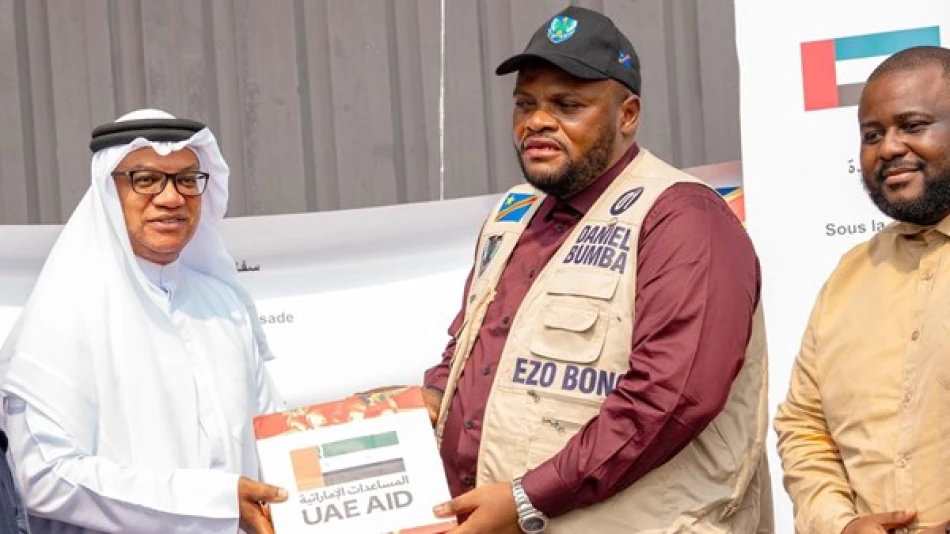
UAE Provides Humanitarian Aid to Flood-Affected Populations in Congo
UAE Delivers Emergency Aid to Flood-Hit Democratic Republic of Congo, Reinforcing Strategic African Partnerships
The United Arab Emirates has dispatched urgent humanitarian assistance to flood victims across the Democratic Republic of Congo, marking another strategic move in the Gulf nation's expanding influence across Africa. The aid delivery, coordinated through official diplomatic channels, underscores how the UAE continues leveraging humanitarian diplomacy to strengthen bilateral ties with resource-rich African nations amid growing global competition for influence on the continent.
Swift Response Through Established Diplomatic Networks
The UAE's International Aid Agency coordinated the relief effort through the country's embassy in Kinshasa, delivering essential food supplies and emergency shelter materials to displaced families in temporary accommodation centers. The operation involved direct collaboration with Daniel Bumba Lubaki, Governor of Kinshasa Province, the Ministry of Social Affairs, Humanitarian Action and National Solidarity, and the Governor of Tshopo Province.
This coordinated approach demonstrates the UAE's sophisticated diplomatic infrastructure across Africa, built over decades of strategic investment in bilateral relationships. The rapid deployment suggests pre-existing logistical frameworks that enable quick humanitarian responses—a capability that enhances the UAE's soft power credentials.
Strategic Humanitarian Diplomacy in Action
UAE Ambassador to the DRC Anwar Othman Al-Barout emphasized that the emergency aid reflects the Emirates' international humanitarian responsibility toward the Congolese people, describing it as embodying "noble values of solidarity between human beings." He noted that bilateral relations between the two countries aim to enhance permanent cooperation across various sectors, translating leadership directives while meeting popular aspirations.
Pattern of African Engagement
This assistance fits within the UAE's broader African strategy, similar to its humanitarian interventions in Somalia, Sudan, and Ethiopia. Unlike Western aid models often tied to governance conditions, the UAE's approach focuses on immediate relief while building long-term diplomatic capital. This strategy has proven effective in securing mining rights, port access, and strategic partnerships across the continent.
Implications for Regional Influence
The DRC's vast mineral wealth—including cobalt, copper, and rare earth elements critical for renewable energy infrastructure—makes it a priority partner for nations seeking to secure future supply chains. The UAE's humanitarian presence provides a foundation for deeper economic engagement, particularly as global demand for these materials intensifies.
Congolese officials expressed profound appreciation to the UAE's leadership, government, and people for this humanitarian gesture, which they described as part of an extended series of Emirati humanitarian and developmental assistance to the Congolese people. This positive reception creates favorable conditions for future bilateral agreements.
Competitive Advantage in African Relations
While China dominates African infrastructure investment and Europe maintains traditional aid relationships, the UAE has carved out a distinctive niche through rapid humanitarian response combined with pragmatic economic partnerships. This model avoids the debt concerns associated with Chinese projects while offering more immediate benefits than traditional Western development programs.
The timing of this aid delivery, amid ongoing regional instability and climate-related disasters, positions the UAE as a reliable partner capable of responding quickly to crises—a valuable reputation in a continent frequently affected by natural disasters and humanitarian emergencies.
Most Viewed News

 Layla Al Mansoori
Layla Al Mansoori






